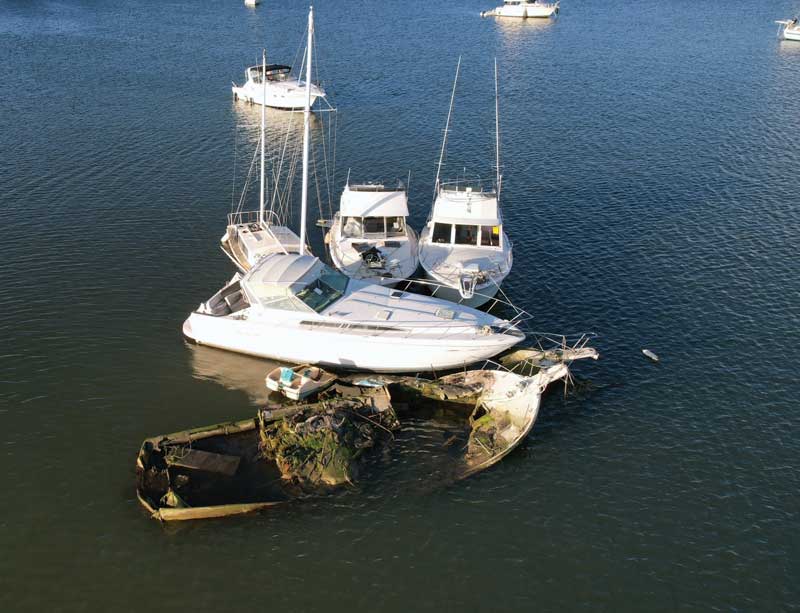Boats end up abandoned or derelict on our nation’s coasts for several reasons. Irresponsible owners abandon vessels when they can no longer afford to care for them or pay for their disposal. Poorly maintained, “at risk” anchored boats combined with the increasing frequency and severity of storms leave shorelines littered with wrecks after each hurricane. A four-year, $10 million grant from NOAA’s Marine Debris Removal Program to the BoatUS Foundation for Boating Safety and Clean Water aims to rid our nation’s shores of abandoned and derelict vessels (ADVs), and remove the associated pollution, navigation, and safety hazards that can harm waters for years.

The grant, funded by the Bipartisan Infrastructure Law, is part of NOAA’s larger mission to address marine debris, which not only includes fiberglass boats but derelict fishing gear, plastics, and other types of debris.
The majority of funds will kickstart a one-stop-shop competitive grant program to seek out and complete marine debris removal projects on our nation’s coasts (saltwaters) and in the Great Lakes for funding and support. Under the guidelines, any organization—public or private—will be able to apply for ADV removal funds.
To help educate and prevent future ADVs, the Foundation will also create a national ADV database to track the scope of the challenge and measure success, document ADV prevention and removal activities to share with the public, and support a national dialogue and education efforts on boating-related debris removal, with an added focus on how ADVs impact waters in underserved communities.
“This is a coordinated, once-in-a-lifetime investment to remove abandoned and derelict vessels, and we’re proud to help NOAA carry out this important mission to rid our shores of marine debris,” said BoatUS Foundation president Chris Edmonston. “Our goal over the next four years is to focus on the immediate issue—the substantial number of ADVs that need removal. In the future, we hope to expand the program to inland freshwater lakes and waterways and reach a point where ADV removals diminish as educational and preventive efforts have greater impact. It’s much more cost-effective to stop it before it happens.”
The Foundation, which drew more than 60 letters of support for the grant application, expects to announce the opening of ADV grant program applications in early 2024. Updates will be posted to BoatUS.org/ADVGrant as they occur.